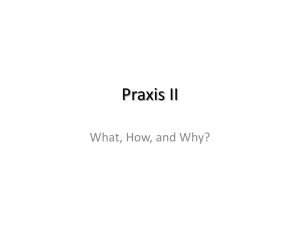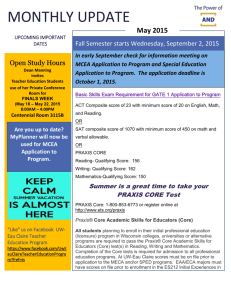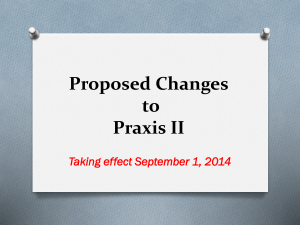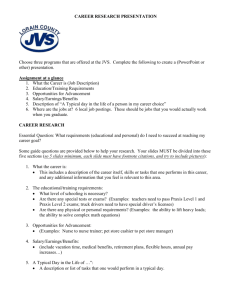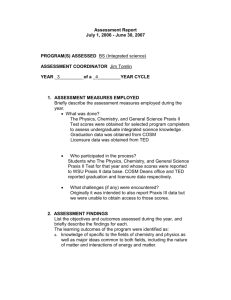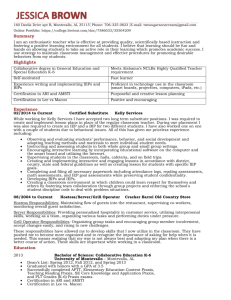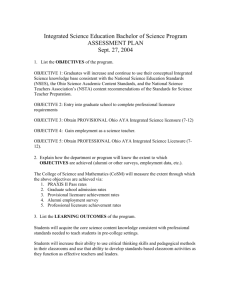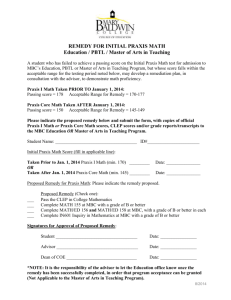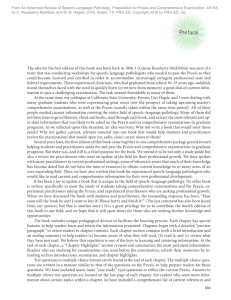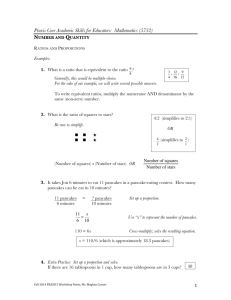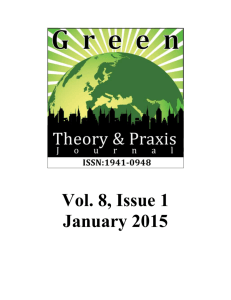Content Title of artifacts: Praxis I and Praxis II Scores Date
advertisement
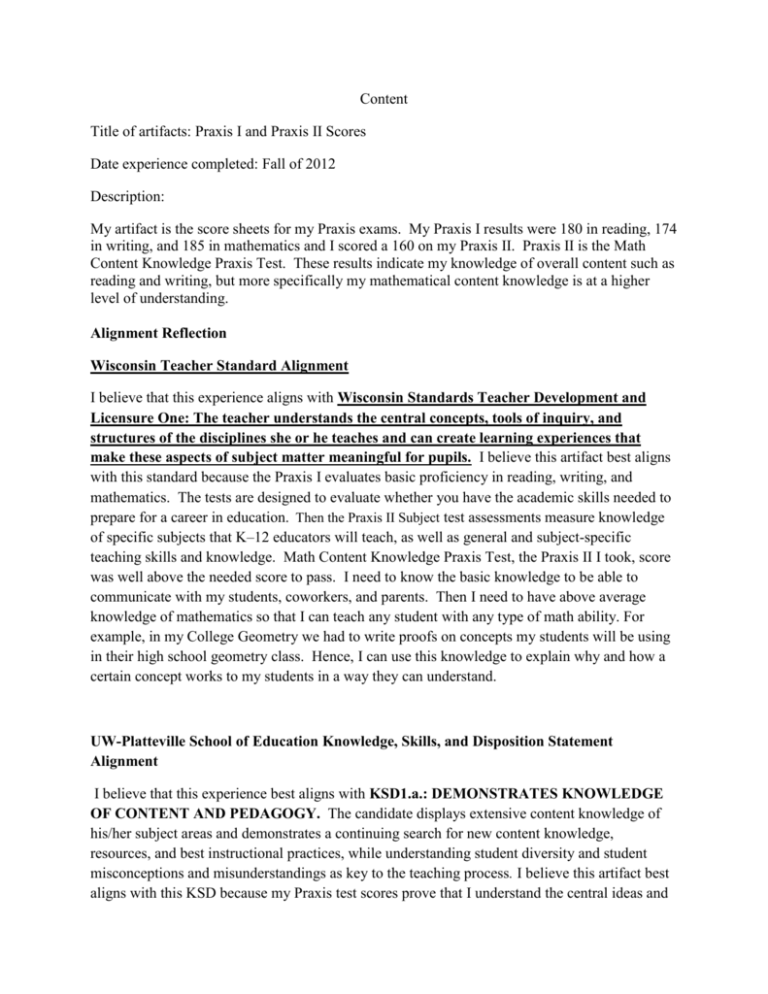
Content Title of artifacts: Praxis I and Praxis II Scores Date experience completed: Fall of 2012 Description: My artifact is the score sheets for my Praxis exams. My Praxis I results were 180 in reading, 174 in writing, and 185 in mathematics and I scored a 160 on my Praxis II. Praxis II is the Math Content Knowledge Praxis Test. These results indicate my knowledge of overall content such as reading and writing, but more specifically my mathematical content knowledge is at a higher level of understanding. Alignment Reflection Wisconsin Teacher Standard Alignment I believe that this experience aligns with Wisconsin Standards Teacher Development and Licensure One: The teacher understands the central concepts, tools of inquiry, and structures of the disciplines she or he teaches and can create learning experiences that make these aspects of subject matter meaningful for pupils. I believe this artifact best aligns with this standard because the Praxis I evaluates basic proficiency in reading, writing, and mathematics. The tests are designed to evaluate whether you have the academic skills needed to prepare for a career in education. Then the Praxis II Subject test assessments measure knowledge of specific subjects that K–12 educators will teach, as well as general and subject-specific teaching skills and knowledge. Math Content Knowledge Praxis Test, the Praxis II I took, score was well above the needed score to pass. I need to know the basic knowledge to be able to communicate with my students, coworkers, and parents. Then I need to have above average knowledge of mathematics so that I can teach any student with any type of math ability. For example, in my College Geometry we had to write proofs on concepts my students will be using in their high school geometry class. Hence, I can use this knowledge to explain why and how a certain concept works to my students in a way they can understand. UW-Platteville School of Education Knowledge, Skills, and Disposition Statement Alignment I believe that this experience best aligns with KSD1.a.: DEMONSTRATES KNOWLEDGE OF CONTENT AND PEDAGOGY. The candidate displays extensive content knowledge of his/her subject areas and demonstrates a continuing search for new content knowledge, resources, and best instructional practices, while understanding student diversity and student misconceptions and misunderstandings as key to the teaching process. I believe this artifact best aligns with this KSD because my Praxis test scores prove that I understand the central ideas and concepts in mathematics. Hence, I can use my knowledge to create engaging lessons that keep my students questioning and wanting to strengthen their math ability. In my experiences with tutoring and teaching, I have seen many misconceptions. I have asked the students to explain why they are doing this misconception to help me guide them back to the correct concept. For example, many students when simplifying complex fractions want to move the top fraction down and having the answer flipped, instead of moving the bottom fraction up. I use Drake’s song, Started from the Bottom, to help remind the students that we flip the bottom fraction up to simplify complex fractions. This experience also aligns with: • KSD1.e – Designs Coherent Instruction • KSD2.b – Establishes a Culture for Learning • KSD3.c – Engages Students in Learning Reflection: What I learned about teaching from this experience: From this experience, I have learned that I need to have a complete understanding of the topic and concept that I’m teaching so that when a student is thinking outside the box and asking deeper questions that I’m able to answer them and help them understanding more clearly. I also found that students learn more about the topic when they are given the opportunity to try a few problems their self in class and then able to ask me questions when they are stuck compared to me lecturing on the topic. It also helps to relate the topic to other subjects and real life situations. What I learned about myself as a future teacher: From this experience, I have learned even though I have the basic knowledge of math. I do not know every concept with complete understanding that I can answer those why and when will I use this questions I will get from my students. I need to keep growing myself as a learner, in my knowledge of math, just like I ask my students to do. I should follow the standards I give my students to be a good role model, like being a lifelong learner. Lately, I have been learning hand tricks with math, like using a hand for the first quadrant of the unit circle to find what sin of 30 degrees is exactly equal to one half. Therefore, continuing to learn means you will have the resources to help your always changing students. It is important to understand that mathematical and pedagogical knowledge are complex, ever-evolving subjects and one must absorb new ideas and understandings in the field.
